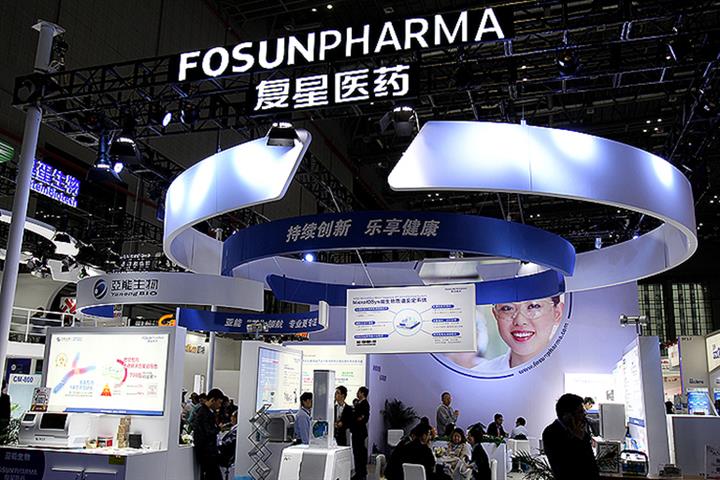 China's Fosun Seeks Growth Boost From Innovative, Global Drugs
China's Fosun Seeks Growth Boost From Innovative, Global Drugs(Yicai Global) Nov. 17 -- China's Fosun Pharmaceutical Group is shifting its focus onto new drug development and the global market as its profits in the domestic generic medicine market are declining.
Generic and innovative drugs have completely different requirements in terms of resources, talent, and organizational capabilities, Chairman Wu Yifang told Yicai Global during the International Biopharma Industry Week Shanghai.
To achieve this transformation, Fosun has created an open collaboration model to bring in talented people, leading technologies, and high-value products from around the world, the chief of the Shanghai-based firm added.
Fosun's interim report shows that the company's recently launched products made up more than a quarter of its pharmaceutical revenue in the first half. Meanwhile, sales in offshore regions and countries accounted for more than 35 percent of all revenue.
Fosun is one of the first Chinese pharmaceutical companies to propose internationalization, Wu said, adding that it has established a complete system of operations in some important markets. That includes a sales team of about 800 people in Africa, covering 39 countries as of Dec. 31, 2021. One of the highlights is Fosun's antimalarial drug Artesun which has helped more than 48 million patients.
The essential driver of innovation for drug companies is unmet medical needs, Wu said. At present, there are still many diseases that have not been truly cured, such as tumors, autoimmune diseases, and degenerative diseases caused by aging, all of which pose a great burden on society and at the same time give the medical industry very large room for innovation.
More social funds should be invested in pharmaceutical inventions, according to Wu. China has formed several funds fostering pharmaceutical achievements in universities, but the power of enterprises alone is not enough, Wu said, adding that the country needs more diversified social funds. "It is very important to guide these funds and form a positive incentive mechanism."
Shanghai is no longer behind other world-class medical clusters in terms of capital and innovative talent, but there are still gaps in instruments, equipment, consumables, and reagents, and these areas require government guidance and support, per Wu.
If these gaps are filled, the research and development efficiency of enterprises will be further improved and more talents will be encouraged to innovate and become entrepreneurs, he added.
Editors: Dou Shicong, Emmi Laine, Xiao Yi